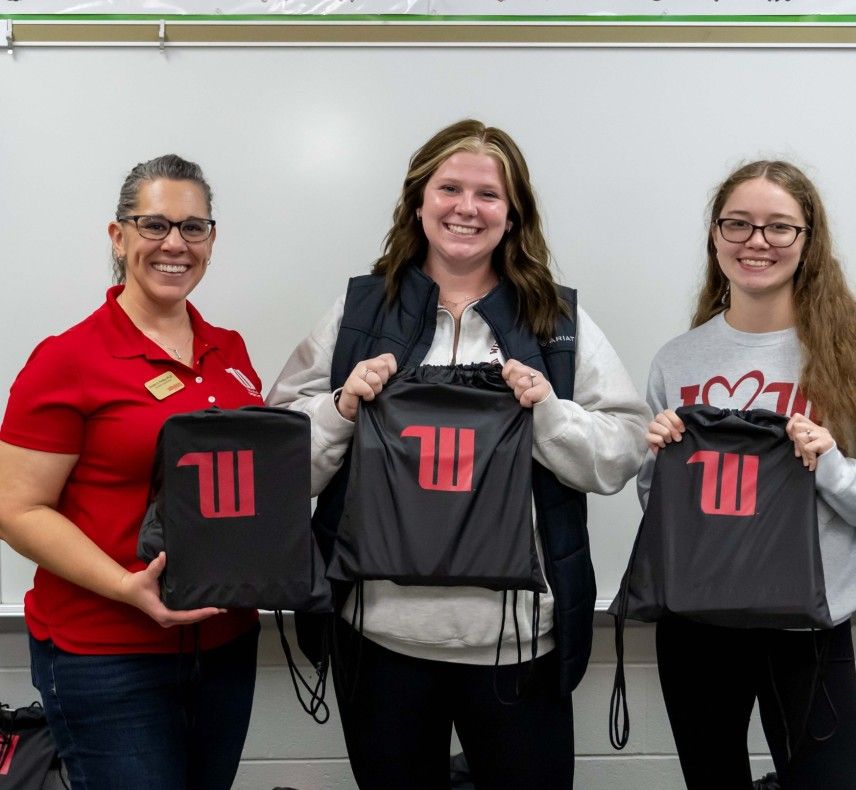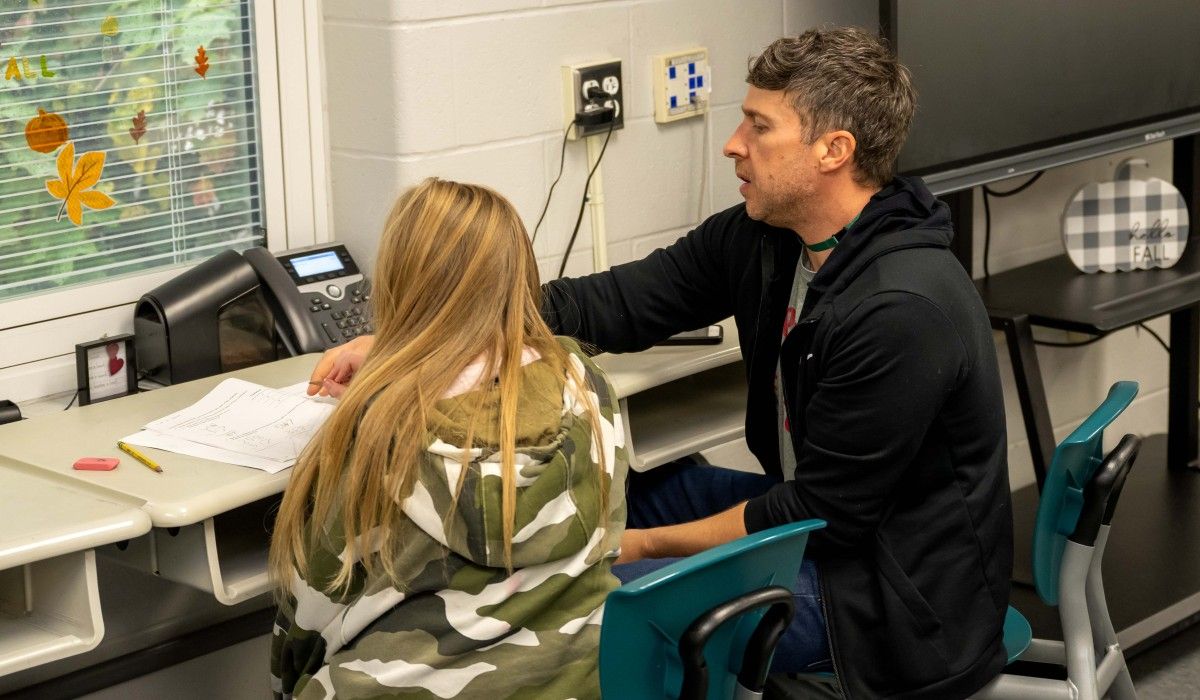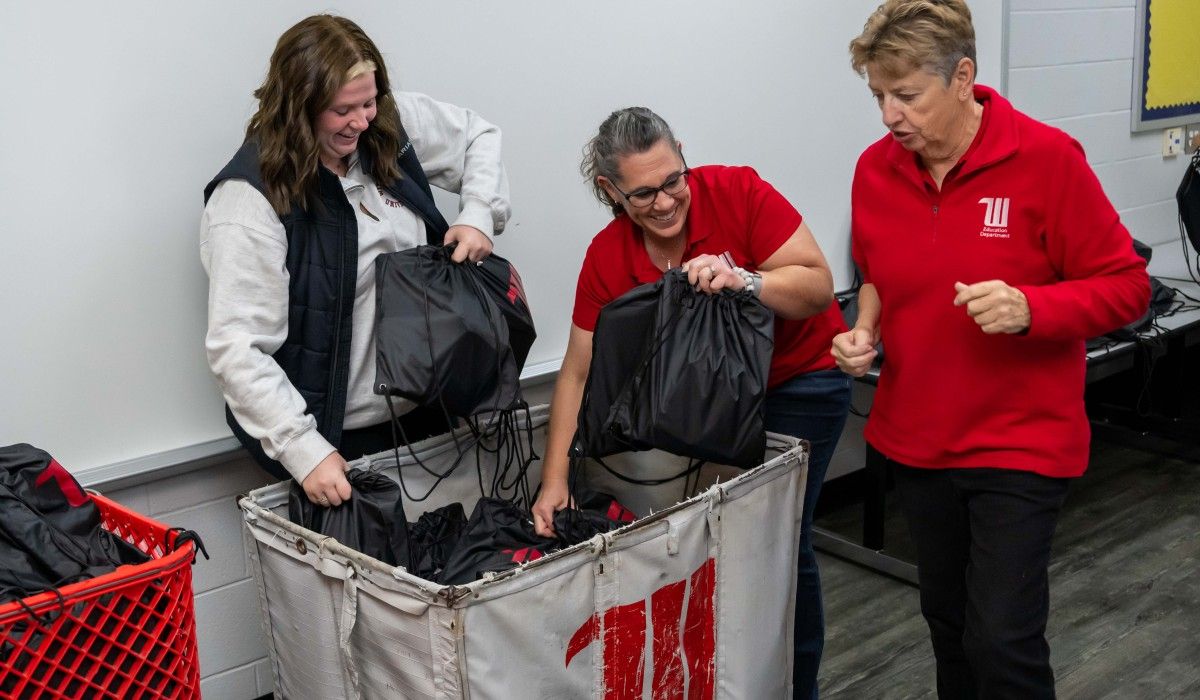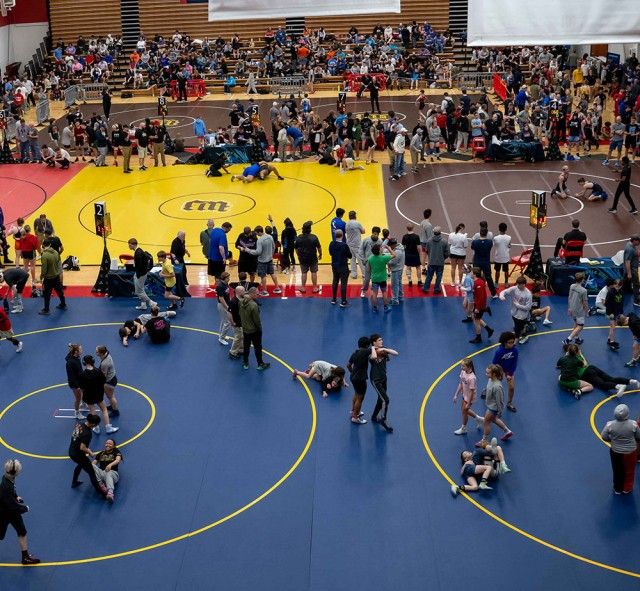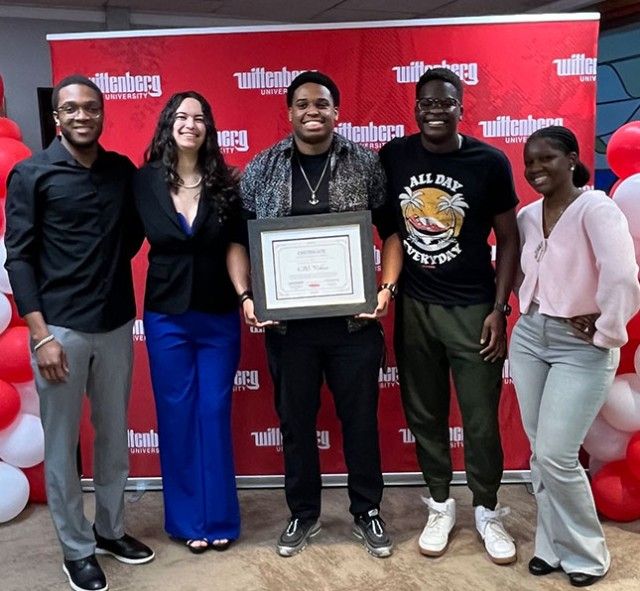Several Wittenberg education majors who have served as local tutors recently packed and delivered bags to children at Lagonda Elementary and Northwestern Elementary Schools to help families with in-home tutoring. The initiative, part of a federal grant awarded to Wittenberg’s Department of Education for mathematics and literacy tutoring, aims to boost academic achievement through the Ohio Department of Education and Workforce Development (ODEW) and the Ohio Department of Higher Education (ODHE).
“We delivered 375 bags to Lagonda and 975 bags to Northwestern so that every student in each building receives a bag,” said Kristin Farley, associate professor of education, who has been overseeing the grant.
“Each bag contained materials that will allow students to engage in literacy and math experiences at home with their family,” she added.
Items included a dry erase board with marker and eraser, spiral notebook, alphabet tiles, Unifix cubes, Base 10 blocks, a ruler, two dice, and math fact flash cards. Students also received a new book based on their grade level.
The program, which has been a great collaboration between Wittenberg, Springfield City Schools, and Northwestern Schools will continue even though the grant has officially ended. The partnership allows Wittenberg education students to tutor at the two school systems. This semester alone, there are 26 students providing 27 different students tutoring services across both districts. To date, Wittenberg has had 102 students provide tutoring, some for multiple semesters, to a total of 277 elementary students.
Referred to as “high-dosage” tutoring programs for local K-12 students in one-on-one or small group settings, and defined by the Annenberg Institute at Brown University as more than three days per week or at a rate of at least 50 hours over 36 weeks, the programs are meant to provide support for students who experienced learning disruptions during the pandemic, according to ODHE. College students participating in tutoring also benefit from field experience, community service, and other incentives such as stipends or course credits.
Wittenberg students, who were receiving stipends through the grant, will now receive CCUE credit for tutoring in EDUC 253, field experience in EDUC 323, and experiential learning credit in EDUC 360.
“The grant officially ended September 30, 2024, but with the funding we received we were able to set up the program for sustainability into the foreseeable future by purchasing materials such as the tutoring backpacks and other curricular supplies,” Farley said. “The tutoring program is embedded into multiple courses that are required for our students seeking an elementary teaching license in the education department.”
Students who enroll in EDUC 253, Phonics for Reading and Writing, or EDUC 323, Elementary English Language Arts Methods, participate in tutoring throughout the semester. This semester, Wittenberg also offered EDUC 360, Tutoring Apprenticeship, for the first time. Students in this course can choose to tutor in reading or math based on experience and district needs allowing students to participate in tutoring students for an additional semester when they are not enrolled in the other tutoring courses.
“All tutors complete training modules that cover the basics of how to tutor, as well as an additional module for ongoing training after tutoring is underway,” Farley added. “Tutors complete weekly tutoring plans, conduct ongoing progress monitoring assessments, and document student progress. Sessions are aligned with ongoing classroom instruction and assessment results to best support students’ progress. Each session includes time to read, write, and engage in activities that build essential reading skills.”
Tutors are provided with packs full of supplies that aid in instruction across a range of skills. These include dry erase boards and markers, alphabet tiles, Elkonin boxes for segmenting words into sounds and letters, reading passages, flash cards, and tools for additional interactive work such as spinners, glue, and Playdoh. There are also additional resources available from Wittenberg’s Education Department and the CRC in Thomas Library for tutors to borrow. Materials such as dice, fraction blocks, number lines, and Base 10 blocks are available for tutoring in math.
“The program follows guidelines for high-dosage tutoring, which includes providing 30-minute sessions three times per week, with tutors working with the same student at each session,” Farley added. “This allows tutors and elementary students to build strong relationships and consistently work toward the students’ learning goals. High-dosage tutoring following this general format has extensive research support as one of the most effective ways to help students make academic gains.”
The program is a win-win for both Wittenberg and the local school districts it supports. Students delivered bags to Lagonda on Wednesday, Nov. 6 and to Northwestern on Thursday, Nov. 7.
At Lagonda, the bags were distributed the following day during the school’s family STEM and Literacy night, an event where Wittenberg Education students enrolled not only in the phonics and English/language arts methods courses, but also those enrolled in the math and science methods courses will lead activities to engage students and their families.


